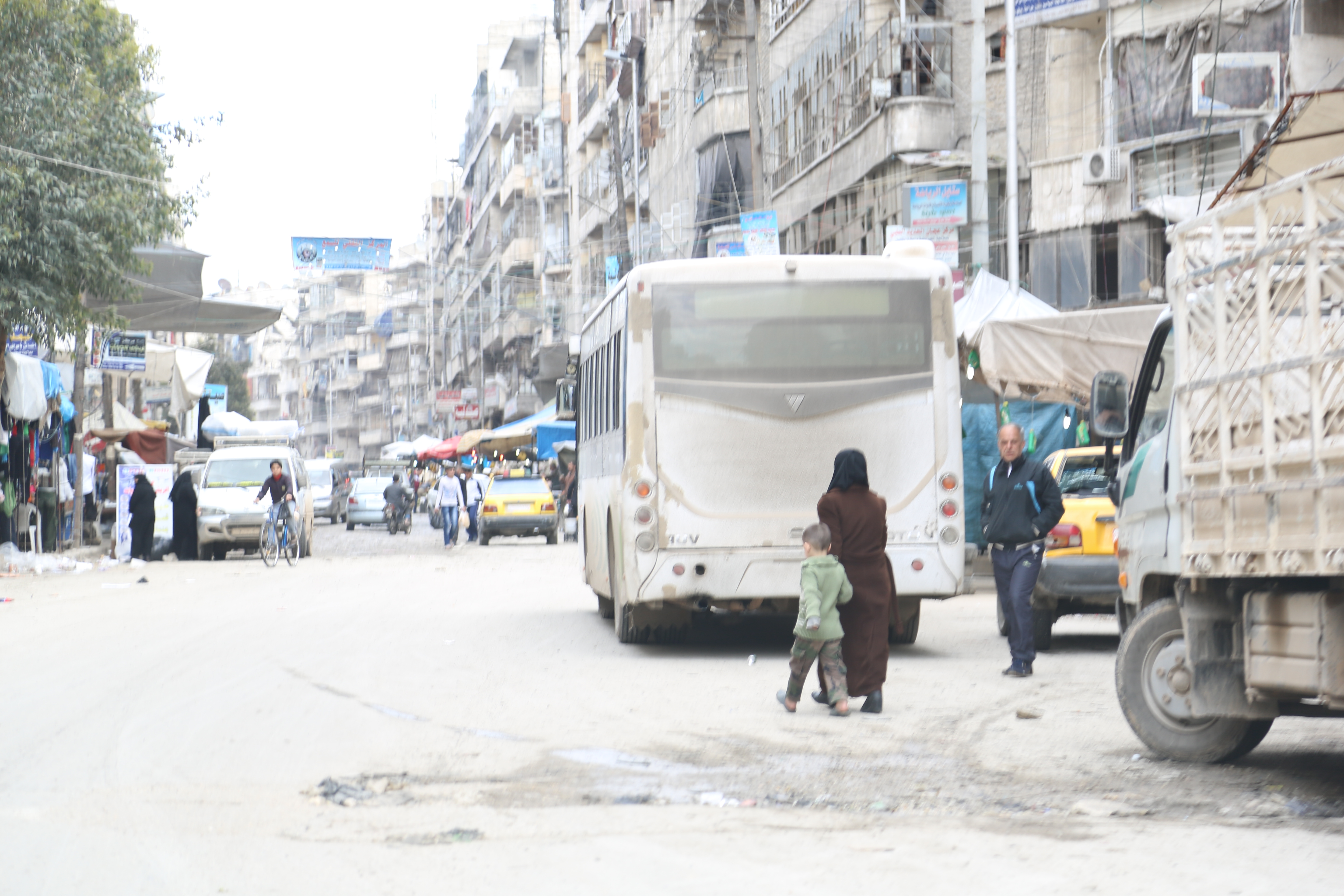Separated by War

My husband, my two young sons and I had fled Syria to take refuge in Lebanon. In Beirut, my husband found a job in a laundrette, but life was a struggle.
Worn out and tired of displacement, we decided to return to Syria. On August 14, 2014 we gathered our belongings and made the journey back home.
Home was Idlib, the city we had fled along with my father and brothers. My family was well known for its revolutionary activities; now that the city was under government control, anyone bearing my maiden name was at risk of being detained.
My husband reopened the launderette my father owned, and the harassment by security forces and shabiha [pro-regime paramilitaries] began almost immediately.
The economic situation in Idlib only added to the pressure he was under. The cost of living had increased considerably; people no longer spent their money on luxuries such as ironing and drycleaning.

On March 28, 2015, the opposition liberated Idlib, but the celebrations did not last long. Hours later, government aircraft began pounding the city forcing residents to flee for their lives, my family amongst them.
We took refuge in Arab Saeed, a small village in Idlib’s countryside, and stayed there for three months. When things calmed down in Idlib we once again made the journey back home.
We found our launderette in ruins, destroyed by the shelling.
My husband had no alternative but to return to Lebanon and ask for his old job back at the launderette.
On July 20, 2015, he travelled back to Beirut via Damascus. I was terrified he would be arrested while on the road, but thankfully he crossed the border safely.
Life for my children and I took a new turn. We were all alone.
Nour and Laith were both in primary school, in year five and year two respectively. They missed their father terribly, and never tired of asking me when they would see him again.
When a government air raid on our local vegetable market killed many civilians, I was forced to take my children and flee Idilb yet again.
We went to a village named Hafsraja. This displacement was the most difficult as my husband wasn’t there to look after us.
We went back home after the UN, Turkey and Iran brokered a ceasefire covering Zabadani, Madaya, Kafraya and Al-Fuah.
The truce lasted for six months. As it drew to an end I found myself crippled with fear of the unknown.
I thought about joining my husband in Lebanon, but the journey was full of risks. What would happen to my children if someone seeking revenge on my father or brothers detained me at a checkpoint?
My husband could no longer come back to Syria either. He was born in 1979, and the government had recently ordered all the men born in that year to join the military.
He was stuck in Lebanon and we were stuck in Syria.
My small family had been divided, perhaps forever.
How would you feel, not knowing if your family would ever be complete again?
How do your answer your children when they ask when they will next see their father, while military planes circle the skies above you?
How would you feel being caught up in a war, not knowing how, or when it will end?
I felt nothing but sadness, especially for my children.
One night, as government aircraft circled above our neighbourhood, I noticed that my youngest son Laith was more upset than usual.
“Are you scared?” I asked him.
“No,” he replied. “I’m sad, because if I were to die during one of these bombings, I would never see father again, which will also make him very sad.”
His words broke my heart.
“How long do you think our separation will last, mother?” he asked me, “Do you think we’ll all be together again?”
With no answers to my children’s questions, I have resorted to daydreaming.
In my imaginary world my children have wings that enable them to fly away from this war and cruelty, and be reunited with the father they miss so much.
Lilas Hashim is the pseudonym of a 31-year-old Damascus Bureau contributor who lives in Idlib, along with her two young sons.
Read the Arabic version of this article here
